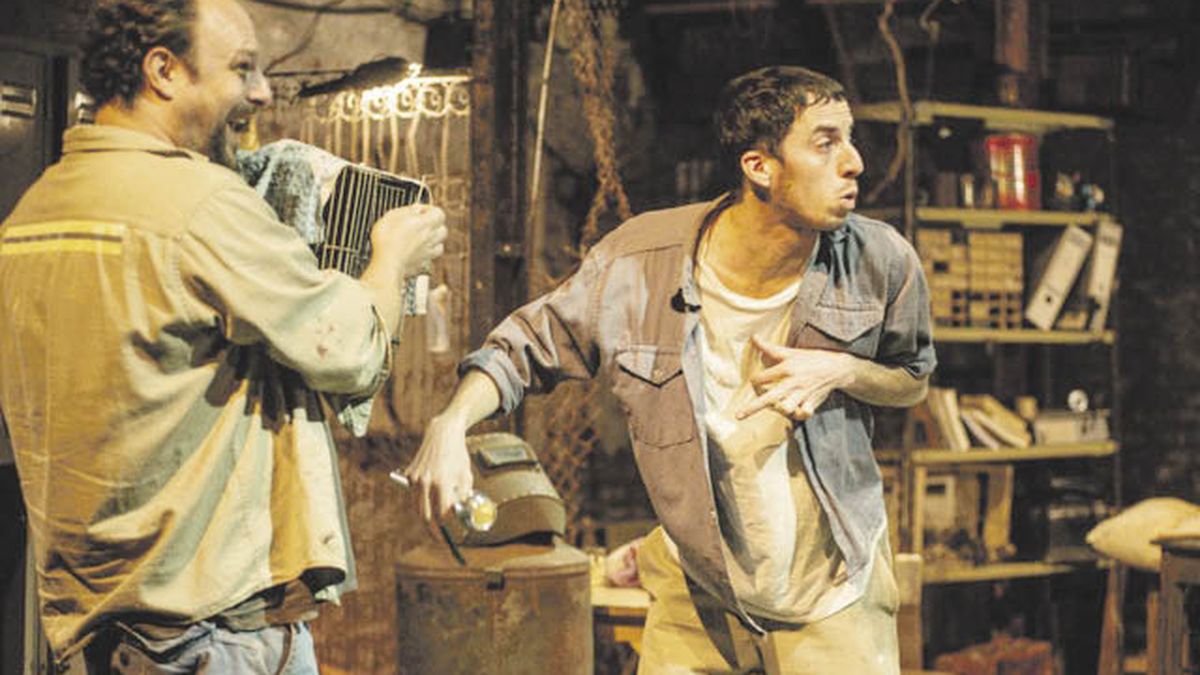Mariano Saba: It was born from the invitation of Nelson and the group of actors, who wanted to work on Shakespearean textuality and sought me out to transform the story into a more current story. We met virtually at the most critical moment of the quarantine and working on “Richard III” stimulated me. He is a great cop, where the villain provokes some empathy despite exposing his great mechanism of crime and ambition.
Q.: How did you bring the story closer to this time and context?
MS: I tried to update it to a circumstance more linked to us. There was something of the ferocity that could be compared with the crisis at work and the difficulties linked to the more social fabric. Ricardo III is transformed not only into the monster that is already in the work but into a new correlate linked to the fall of a world, our world.
Q.: Was there anything from the quarantine that was trapped in the work?
MS: Yes, the darkness of the protagonist and his ambition, that criminal course that has to do with the collapsed power, resonated with the desperation that had cornered the world at that time. I associate the darkness of the text with the darkness of the hardest months of the quarantine.
Q.: In your version there is not a kingdom but a factory, how is the story?
MS: It takes place in the ’90s and takes place in a paper guillotine factory whose machinery, ovens and scraps of metal were left in the hands of three brothers who were workers and sons of the foreman and receive the shed as part of payment. They are consumed by violence until the arrival of a possible buyer unleashes a spiral that ends up incurring crimes that are in the work of Shakespeare. There is a criminal plot around the ambition of Ricky, Richard III’s alter ego, who has enormous physical and motor difficulties but great intelligence, memory and strategic ability. He has the deformity of Richard III, and uses the simulation of weakness to get revenge. He uses his enormous intellectual strength for harm and evil. He wants to see the broken bodies that have subjugated him, his brothers and the ghosts of the past. I believe a lot in the idea of Ian Colt working with the kings of Shakespeare. There is something of the succession of links and the ancestral violence present in the kings and that takes police procedure. He maintains the link with the public thanks to the simulation of weakness and the others cannot intuit that the engine of violence is behind it.
Q: What did the direction of Nelson Valente add to it?
MS: Dynamism in acting. It ends up being an overwhelming story because of the way violence is told
Q.: Did you want to make a more faithful adaptation and the request was to update it?
MS: No, I don’t know how to make adaptations, the rewriting seemed more interesting to me, there is very little that we take from Richard III without being transformed, it is a story that accompanies the reference to Shakespeare’s universe and then deviates, here the whole machine of criminal ambition is devoted to its own ghosts. That is the correlate with the classic
Q.: Why does the theater return to the classics? There are several on the bill such as Lysistrata, Titus Andronicus, Julius Caesar debuts.
MS: Shakespeare is always relevant for the invention of the human, because the multifaceted totality of the human is present in a very complex and accessible way. I think I remember that in previous crises in the country the appeal to Shakespeare was recurrent, it has a surprising complexity despite the fact that one can recognize the argument. I mean, you don’t see a simple theatrical story, it’s as complex as life itself and in dire circumstances. Because “The Comedy of Errors” is not being made, but rather great tragedies. Every so often we see “Romeo and Juliet” that revitalizes what has to do with love and death, “Hamlet” that rethinks the difficulties of legacy or “Richard III” about the mechanisms of ambition and violence in any stratum.
Source: Ambito
David William is a talented author who has made a name for himself in the world of writing. He is a professional author who writes on a wide range of topics, from general interest to opinion news. David is currently working as a writer at 24 hours worlds where he brings his unique perspective and in-depth research to his articles, making them both informative and engaging.




